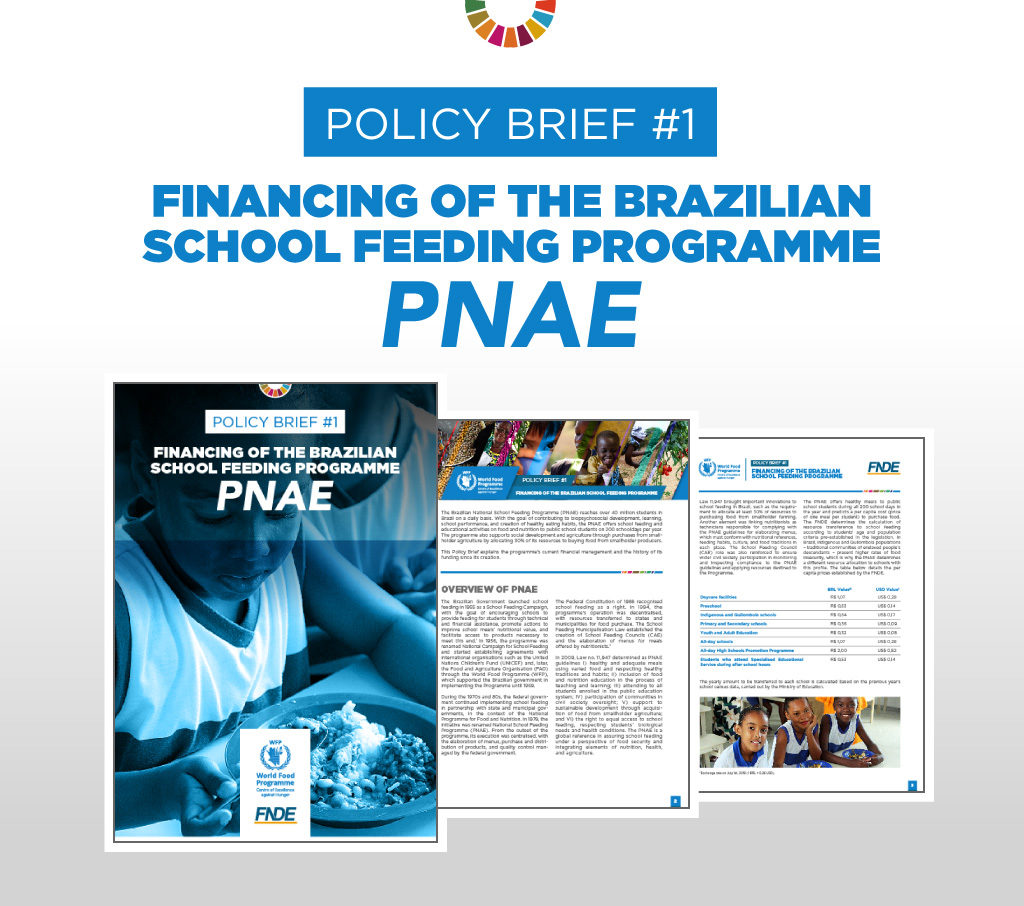Financing of the Brazilian School Feeding Programme – PNAE
The Centre for Excellence against Hunger and the National Education Development Fund of Brazil have issued the publication Financing of the Brazilian School Feeding Programme – PNAE, which explains the financial management and the history of the programme´s funding since its inception.

The Centre for Excellence against Hunger and the National Education Development Fund of Brazil have issued the publication Financing of the Brazilian School Feeding Programme – PNAE, which explains the financial management and the history of the programme´s funding since its inception.
Revisiting the main milestones and evolutions of the PNAE over six decades, the publication details the various instruments of tax collection and creation of funds that allowed the stable financing of the program. The Brazilian experience in the financing of school feeding underscores the importance of a legal provisions for budget allocation for school meals to ensure the progressive expansion of the coverage and quality of meals offered by PNAE in the 27 states and more than 5,000 municipalities in the country.
The publication is part of the new Policy Briefs series that will provide complementary information on different dimensions of the Brazilian program such as financing, implementation and monitoring. The publications will be part of the technical assistance documents provided by the Center of Excellence and are an important tools for policy-makers and other partners – whether government representatives or from other sectors – to analyse design and implementation models of public policies.
The Center of Excellence acts jointly with the partners of the Brazilian Government to promote the exchange of experiences between countries and offer technical assistance to improve food and nutrition public policies in developing countries. In addition to in-country technical assistance, the Center of Excellence remotely supports governments and other WFP offices through the provision of technical and policy advice, information sharing and joint drafting or document review – such as bills, development plans, strategies programs and school feeding documents. The Policy Briefs series will contribute to the continuous recording of experiences and good practices that can inspire the achievement of the Sustainable Development Goals around the world.





